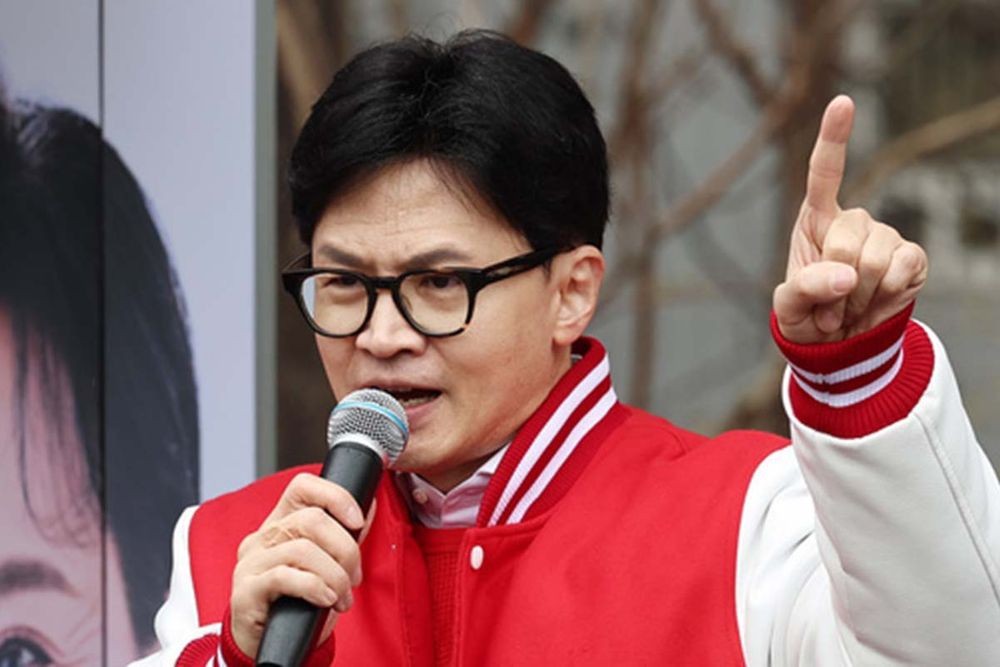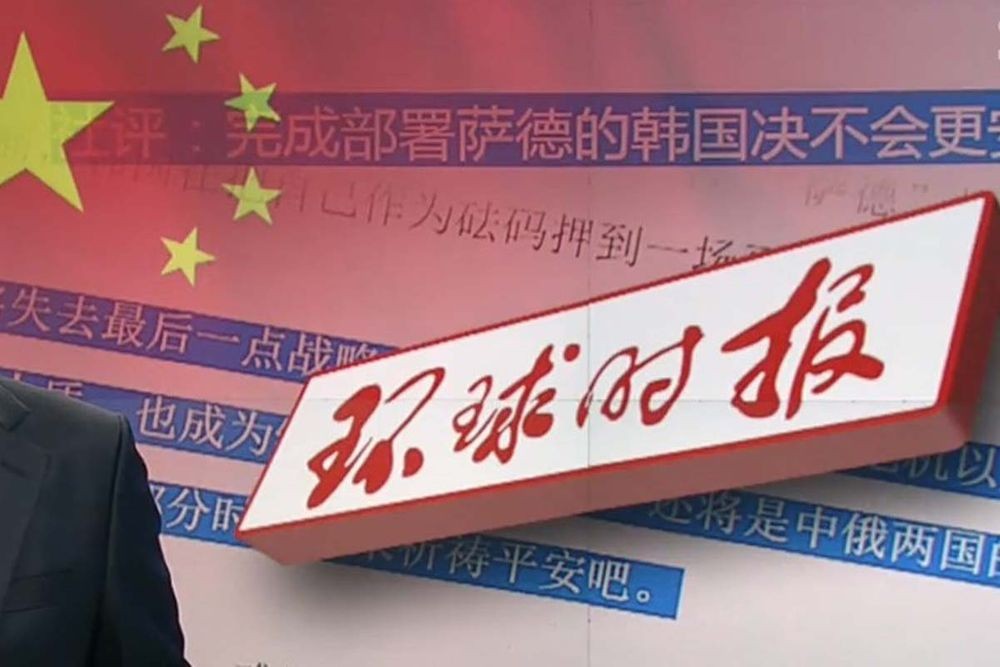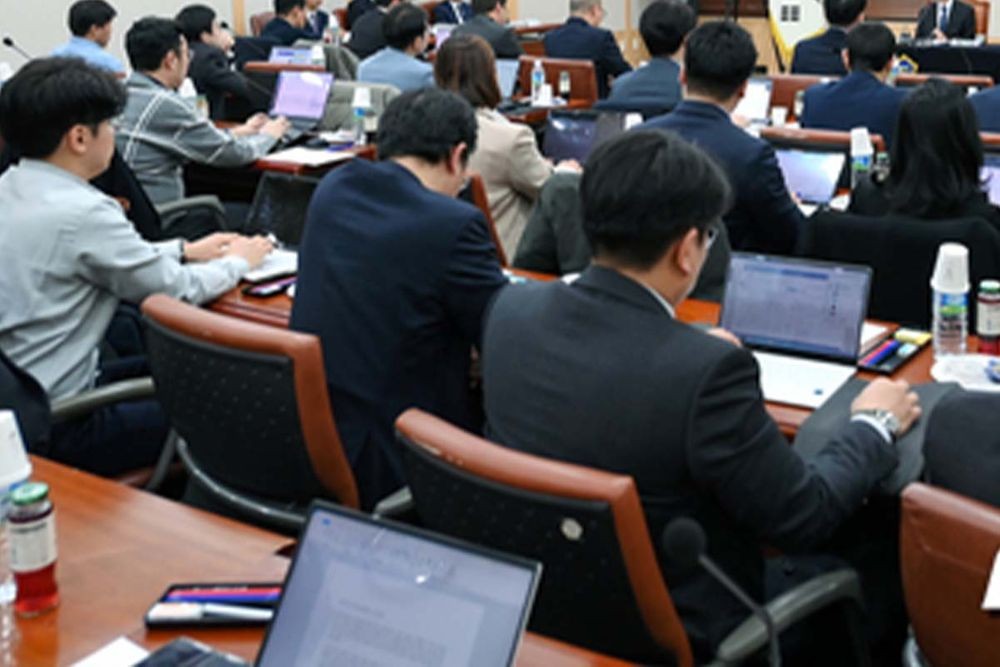
The controversy over Lee Jae Myung, the leader of the Democratic Party of Korea’s ‘Xie Xie’ (thank you in Chinese) remarks, shows no sign of subsiding. The People Power Party continues to treat it as a politically significant incident, saying, “Representative Lee sounds like a spokesperson for the Chinese Ministry of Foreign Affairs,” especially as Chinese media outlets collectively highlight Lee’s remarks, further stirring public opinion. Experts analyze that the People Power Party’s clinging to Lee’s ‘Xie Xie’ comment as sycophancy towards China targets a significant anti-China sentiment among the younger generation.
On the 27th, the People Power Party criticized the Democratic Party and Lee Jae Myung for maintaining a submissive attitude towards China, asking rhetorically if the Chinese Ministry of Foreign Affairs sent them.

Han Dong Hoon, acting chairman and chief election strategist of the emergency measures committee, pointed out in a field election committee meeting in Incheon on the same day, “Lee Jae Myung has shown reckless behavior, and days have passed, yet it still provokes the anger of the people.” He mentioned the issue of voting rights for foreigners, arguing, “If the Democratic Party continues to pursue policies excluding reciprocity, we will have no choice but to live ‘Xie Xie’ to the powerful countries. We will maintain an attitude of reciprocity regarding sovereignty, and that’s the difference between us and Lee’s ‘Xie Xie Democratic Party.
Park Jung Ha, spokesperson for the Central Election Committee, strongly criticized, “The ‘Xie Xie’ remark has dropped the national prestige of South Korea into a pit, as it suddenly received attention and praise in China after some time. The situation has gotten to the point where locals say he’s the Korean most liked by the Chinese.”

Chinese media speculate that they have collectively focused on reporting Lee’s remarks as if they represent a stance on the Taiwan issue that China approves of. The state-run Huanqiu Shibao of the People’s Daily detailed Lee’s comments from the 22nd in an article on the 25th, reporting, “Lee Jae Myung, the leader of the Democratic Party of Korea, known as the largest opposition party, has strongly criticized the Yun Seok Yeol government’s foreign policies towards China and Japan.”
Furthermore, it was reported that “Since its inauguration, the Yun Seok Yeol government has shown a stance closer to the United States and Western countries” and “Last year, at a press conference, Representative Lee demanded President Yun realize the principle that ‘Korea does not intervene in the Taiwan issue.'” Chinese netizens flooded a video edited from Lee’s remarks on Chinese social media, drawing comments from 400,000 users and 20,000 comments, showing reactions like “The only wise person in Korea” and “The smartest and wisest politician.”

The issue of over 30 websites disguised as domestic media outlets by Chinese companies to spread articles unauthorized due to Lee Jae Myung’s ‘Xie Xie’ remarks has reignited.
The National Intelligence Service in November 2023 highlighted that “an unidentified force has been exploiting content sympathetic to China to shape public opinion domestically.” According to the NIS, Chinese media PR companies Haimai and Haixun manipulated names and domains to resemble actual Korean local media sites, such as SeoulPress(seoulpr.com), BusanOnline(busanonline.com), and Chungcheong Times(cctimes.org). The NIS uncovered 38 disguised sites pretending to be Korea Digital News Association members.
These sites have been found to post actual domestic news articles without proper agreements and to spread pro-China/anti-US content of unknown origin. They also exploited the Newswire service, which helps deliver press releases from companies and institutions to the media. Their systems, including servers, are operated from China and other foreign locations.
For example, a disguised webpage called Daegu Journal posted an article titled “Japan’s nuclear wastewater discharge seems to affect our country’s food supply chain.” By referring to Japan’s discharged contaminated water as nuclear wastewater, it camouflages the strong opposition within China as if it were an article or press release written by Korean media.
Experts see China’s continuous efforts to spread fake news in Korea and sway public opinion as possibly interfering with the upcoming April 10 general elections, raising suspicions.










Most Commented